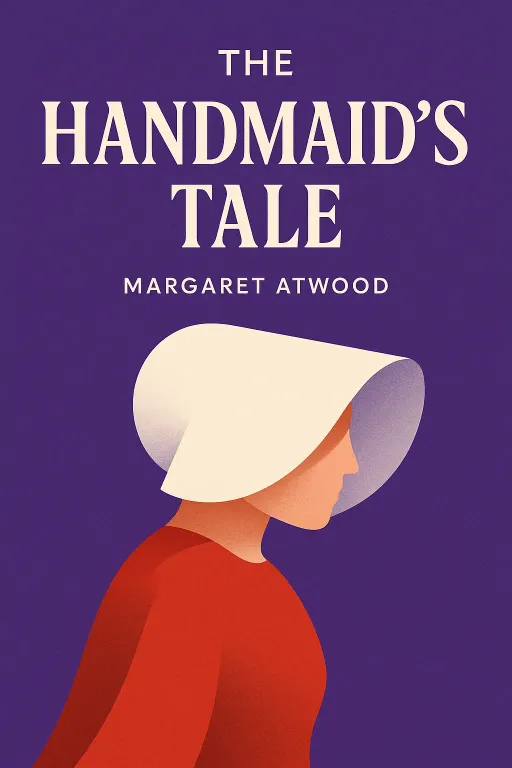
Madame Bovary
10 minIntroduction
Narrator: What happens when the life you read about in books—a life of sweeping passion, moonlit balls, and aristocratic lovers—is the only life you believe is worth living? And what happens when your own reality is one of provincial boredom, a loveless marriage to a kind but dull man, and the suffocating quiet of a small town? This is the chasm in which Emma Bovary finds herself trapped, a chasm between the world she desperately craves and the one she cannot escape. In his masterpiece, Madame Bovary, Gustave Flaubert presents a devastating portrait of a woman whose romantic aspirations become a fatal poison, exploring the tragic consequences of a life spent chasing an illusion.
The Seeds of Disillusionment
Key Insight 1
Narrator: The tragedy of Emma Bovary begins long before her marriage. Educated in a convent, her imagination is not shaped by catechism but by the contraband romantic novels secretly passed around by the girls. An old maid who mends the convent's linen fills their heads with tales of persecuted ladies, secret lovers, and dramatic escapes. Emma consumes these stories, and they form the blueprint for her expectations of life. Words like "felicity," "passion," and "rapture" seem to her to be the very purpose of existence.
This education sets her on a collision course with reality. She marries Charles Bovary, a simple, good-hearted country doctor who is utterly incapable of understanding her romantic soul. He is content with their quiet life, finding happiness in their shared meals and evening walks. For Emma, however, this placid existence is a prison. Before her marriage, she believed she was in love, but when the promised happiness fails to arrive, she concludes she must have been mistaken. The man she married is not a hero from a novel; his conversation is as "commonplace as a street pavement," and he has no interest in poetry, opera, or the grand passions she yearns for. This fundamental mismatch between her literary dreams and her mundane reality plants the seeds of a profound and corrosive dissatisfaction.
The Allure of a Fantasy World
Key Insight 2
Narrator: Emma’s vague longing for a different life is given a sharp, tantalizing focus when she and Charles are invited to a ball at the chateau of the Marquis d'Andervilliers. For one night, she steps directly into the world of her fantasies. She is surrounded by aristocrats, breathes in the scent of wealth and refinement, and is swept away by the elegance of it all. She dances the waltz with a Viscount, a moment of dizzying excitement that feels like a glimpse of what life should be. The experience is so powerful that it makes her return to the quiet town of Tostes unbearable.
The ball at Vaubyessard creates what Flaubert calls "a hole in her life," a great crevice that her mundane existence cannot fill. She clings to the memory of that night, and this obsession is perfectly captured in a small, found object. On the road home, Charles finds a fine cigar case dropped by one of the guests, likely the Viscount. For Charles, it's a curiosity; for Emma, it becomes a sacred relic. She secretly keeps the case, opening it to inhale the scent of tobacco and verbena, imagining it as a portal to the sophisticated, passionate life of its owner. The cigar case is no longer just an object; it is a symbol of the unattainable world she craves, and it fuels her growing contempt for her own.
The Promise of a Kindred Spirit
Key Insight 3
Narrator: Hoping a change of scenery will cure Emma’s growing melancholy, Charles moves his practice to the town of Yonville-l'Abbaye. The town itself is just as provincial and stagnant as Tostes, but it is here that Emma encounters a new possibility for escape. She meets Leon Dupuis, a young law clerk who, like her, feels trapped by the monotony of provincial life.
Their connection is not one of instant, fiery passion, but a meeting of two romantic minds. They discover a shared sensibility, bonding over their love for sentimental literature, melancholic music, and dramatic sunsets by the sea. Leon is the first person who seems to understand her disdain for "commonplace heroes and moderate sentiments." In their quiet conversations, they find a refuge from the boring pronouncements of the town pharmacist, Homais, and the simple-mindedness of Charles. For Emma, Leon represents an intellectual and emotional equal, a kindred spirit who validates her own feelings of discontent. Their relationship is built on a shared dream of a more beautiful, more meaningful life, a dream that seems to stand in stark opposition to the world around them.
The Seduction of Cynical Passion
Key Insight 4
Narrator: After Leon leaves for Paris, Emma’s despair deepens, leaving her vulnerable to a new and far more dangerous influence. She meets Rodolphe Boulanger, a wealthy, experienced, and cynical local landowner. Where Leon was timid and idealistic, Rodolphe is bold and calculating. He immediately sizes Emma up, seeing a beautiful, bored woman who is "gaping after love like a carp after water on a kitchen-table." He recognizes her romanticism not as something to share, but as a weakness to be exploited.
Their affair begins at the local agricultural show, a perfect symbol of the provincial mediocrity Emma despises. Flaubert masterfully contrasts the pompous, empty speeches of local officials with Rodolphe’s carefully crafted seduction. As a councilor drones on about the virtues of government and manure, Rodolphe whispers to Emma about fate, soulmates, and the "conspiracy of the world" that keeps two people like them apart. He plays the part of the misunderstood, world-weary romantic, a role perfectly designed to appeal to Emma's fantasies. He is not offering a meeting of minds, but a thrilling, forbidden passion, and for Emma, who is starved for any kind of excitement, the allure is irresistible.
The Inevitable Collapse of Illusion
Key Insight 5
Narrator: Emma throws herself into the affair with Rodolphe, believing she has finally found the grand passion of her novels. She becomes reckless, spending money she doesn't have on gifts and disregarding social norms. She demands that Rodolphe love her with the same all-consuming intensity she feels. But for Rodolphe, this was only ever a pleasant diversion. He soon grows tired of her "excessive" emotion and begins to see her as just another in a long line of mistresses.
Desperate to escape her life, Emma proposes that they elope. Rodolphe agrees, but secretly has no intention of going through with it. The night before their planned departure, he sits down to write her a farewell letter. In a moment of supreme cynicism, he rummages through a box of mementos from past affairs, looking for inspiration. He crafts a letter full of false sentiment and self-serving excuses, blaming fate for their separation. For a final, manipulative touch, he even fakes a teardrop on the page with a drop of water. When Emma receives the letter, her fantasy world shatters completely. The brutal reality of his betrayal sends her into a spiral of despair, culminating in a near-fatal brain fever.
The Final, Desperate Spiral
Key Insight 6
Narrator: After a period of superficial religious devotion, Emma’s old desires are reignited when she encounters Leon again in Rouen. Their affair begins, but this time it is fueled by a desperate, almost frantic need for escape. Emma lies to Charles about taking music lessons in the city, creating a weekly excuse for her trysts with Leon. She plunges herself into debt with the manipulative merchant, Monsieur Lheureux, buying lavish gifts and clothes to maintain the illusion of a sophisticated life.
However, this affair also sours. Emma's desperation and demands begin to wear on Leon, and her financial situation becomes catastrophic. Facing ruin and the seizure of her home, she makes a final, frantic attempt to secure money. She begs Leon for help, but he has none to give. In a last, humiliating act, she goes to Rodolphe, the man who first seduced and then abandoned her. He too refuses her. With every door closed and every illusion shattered, Emma sees only one way out. She walks to the pharmacist’s shop, manipulates the young apprentice Justin into giving her access to the restricted poisons, and swallows a handful of arsenic, choosing a final, agonizing escape from a life that could never measure up to her dreams.
Conclusion
Narrator: The ultimate tragedy of Madame Bovary is not simply Emma's death, but the death of her dream. Her story is a brutal examination of what happens when a person's inner world of romantic ideals is completely at odds with their external reality. Emma is destroyed not by her affairs, but by her chronic inability to find value, beauty, or meaning in the life she actually has. She is forever chasing an idealized vision of love and happiness, a phantom she has constructed from the pages of novels, and in doing so, she overlooks the simple, genuine affection her husband offers and destroys any chance of real contentment.
Flaubert’s novel was so controversial upon its release that he was put on trial for offending public morals. Yet its power endures because it exposes a timeless human vulnerability—the tendency toward what is now called "bovarysme," a state of perpetual dissatisfaction rooted in the gap between who we are and who we wish we could be. The book leaves us with a challenging question: Where is the line between healthy aspiration and a destructive fantasy that blinds us to the life that is right in front of us?









